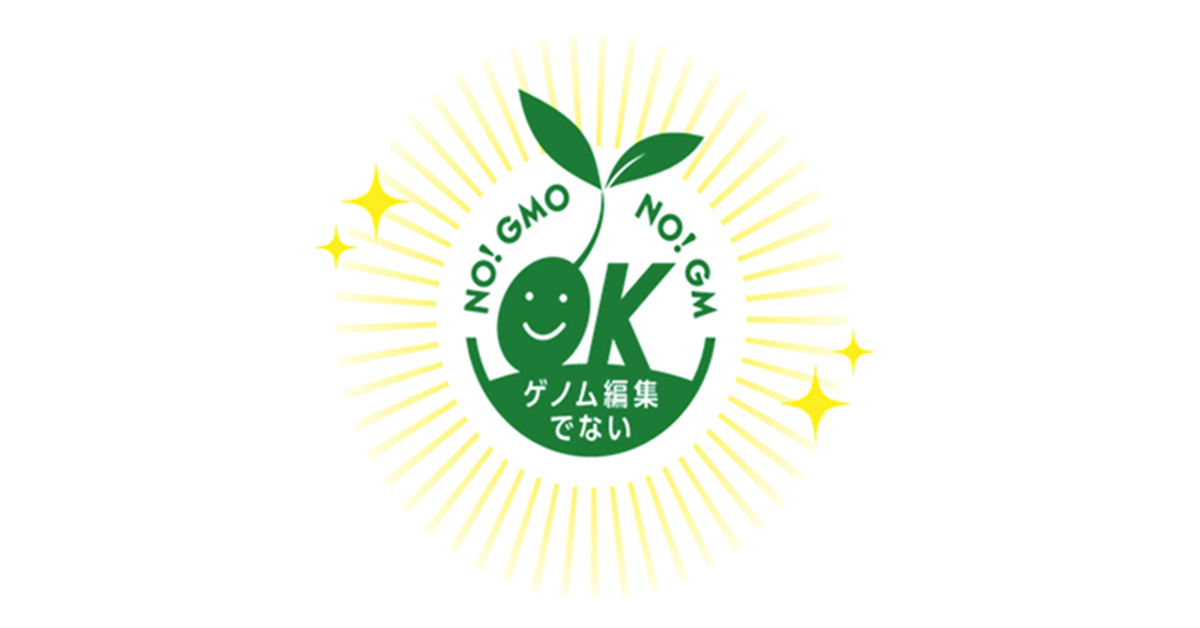
Uncontrolled distribution of unlabelled and non-safety tested gene-edited tomato seed prompts citizens to set up OK SEED Mark
Following the cultivation of gene-edited soybeans in the USA in 2018, and the distribution of its soybean oil starting in 2019, Japan initiated the distribution of the first gene-edited tomato seedlings in May of this year. Later in the year, the Japanese government announced its Green Food System Strategy, which highlights the further use of gene-editing technology to develop new varieties.
In response, a collective decision was made to create the OK SEED Mark, a citizen-led voluntary system to label seeds, seedlings and foods as non-gene-edited. The OK SEED Project was initiated to promote this initiative.
According to the Project, Japanese citizens are aware that researchers from around the world have expressed concern about the safety of applying gene-editing technology to food.[1] Regardless, the Japanese government argued that “gene manipulation by gene-editing is different from GMO technology and is indistinguishable from processes of natural mutation”, and allowed distribution of the gene-edited tomato seeds without conducting safety inspections or applying any labelling requirements.[2]
Anxieties about gene-edited food grow
Gene-editing technology is useful for investigating gene function and for this, the technology has even received the Nobel Prize in Chemistry. However, concerns have been voiced around the effects of gene-edited organisms being released into the environment and the irreversible damage this could cause to the ecosystem. The OK SEED Project says the use of this technology should be confined to experiments in the laboratory.
While the Japanese government maintains its claim that it is safe to apply gene-editing technology to food, there are reports of off-target effects where non-target genes are mistakenly destroyed, unintended mutations occur, or unexpected proteins are produced.[3] Moreover, there are concerns around the insertion of antibiotic-resistant genes which are used to confirm the success or failure of the manipulation. While such genes are supposed to eliminated, there are concerns about their persistence. Despite health concerns around the ingestion of such substances, no experiments have been conducted to confirm their safety. Instead the message is promoted that gene-editing is no different from mutations that occur naturally.
Perhaps the biggest problem is that the production and distribution of gene-edited foods are being allowed without any form of labelling requirement. Because there are no labelling requirements for seeds and seedlings, there is no way for consumers to know whether they are purchasing and then cultivating gene-manipulated crops or not. If nothing is done now, it will become impossible to distinguish between gene-edited and non-gene-edited foods in Japan, and both producers and consumers will be stripped of their right to know about and choose their food. The OK SEED Project says the government should make it compulsory to label seeds and food products that have been genetically manipulated.
Notes
1. GENE EDITING MYTHS AND REALITY
https://www.greens-efa.eu/en/article/document/gene-editing-myths-and-reality
2. Ministry of Agriculture, Forests and Fishery: Handling of Organisms Generated Using New Breeding Techniques (in Japanese)
https://www.maff.go.jp/j/syouan/nouan/carta/tetuduki/nbt.html
Ministry of Health, Labour and Welfare: Gene-editing technology applied food, etc. (in Japanese)
https://www.mhlw.go.jp/stf/seisakunitsuite/bunya/kenkou_iryou/shokuhin/bio/genomed/index_00012.html
3. GMWatch. Gene editing: Unexpected outcomes and risks. https://www.gmwatch.org/en/news/latest-news/19499










